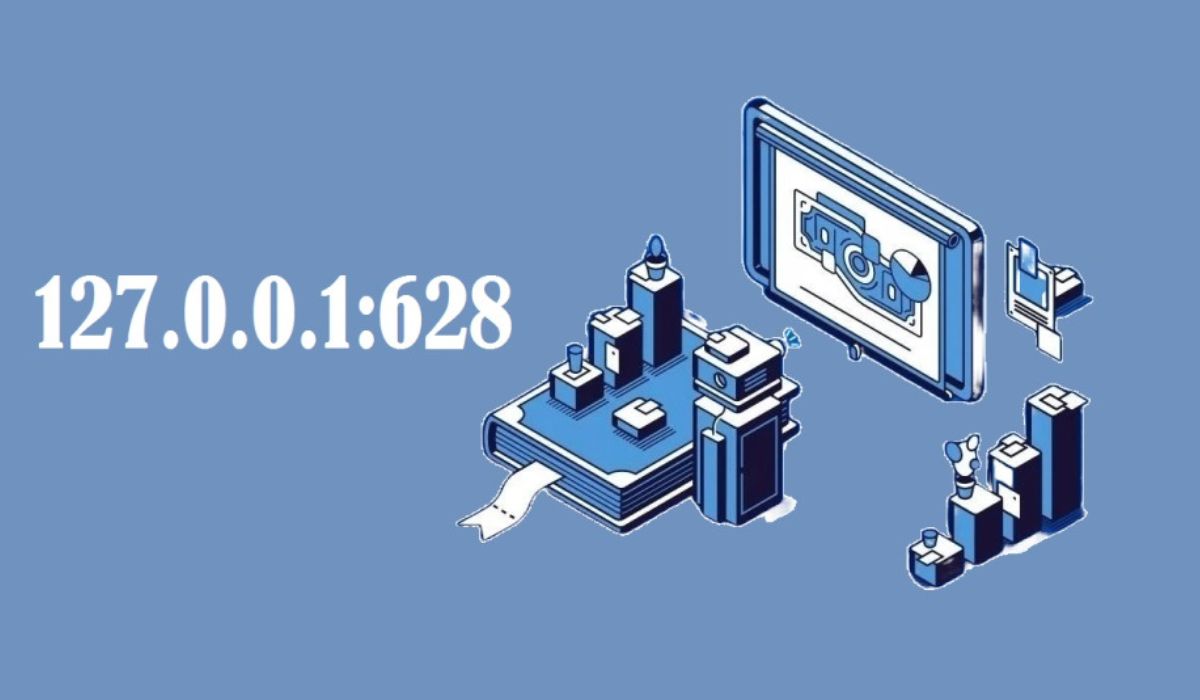Introduction: Decoding the Mysterious IP Address
In the realm of computer networks and software development, the IP address 127.0.0.1:62893 might seem enigmatic. For many, it evokes curiosity and questions. What does it signify? Why is it important? This article will explore the components, uses, and significance of 127.0.0.1:62893, shedding light on its role in local networks, development, and troubleshooting.
Section 1: Breaking Down the Components
127.0.0.1
127.0.0.1 is known as the loopback address in IPv4 networking. It is a special IP address that refers to the local computer—essentially, it is used to test and communicate with itself. Here’s why it matters:
- Loopback Function: This address is used to establish a connection to the local machine, bypassing any network interfaces. It’s crucial for testing network applications and services without needing a live network connection.
- Local Communication: By sending data to 127.0.0.1, a computer can ensure that its network stack is functioning correctly without the need for external network resources.
Port 62893
In network communication, ports are used to differentiate between various services running on a single IP address. Port 62893 is just one of many possible ports. Here’s what you need to know:
- Role of Ports: Ports allow multiple applications to use network resources concurrently. For example, HTTP traffic typically uses port 80, while HTTPS uses port 443.
- Specific Uses: Port numbers can be allocated dynamically by applications or assigned manually for specific services. Port 62893 is not a standard port and could be used by a variety of applications for specific purposes.
The Combination
Combining 127.0.0.1 with port 62893 creates a unique address that refers to a specific service or application running on the local machine. This combination allows for:
- Local Service Testing: Developers often use such addresses to test applications locally without exposing them to the broader network.
- Isolation of Services: Different services on the same computer can be accessed via different ports on 127.0.0.1, ensuring that they do not interfere with each other.
Section 2: Uses of 127.0.0.1:62893
Development and Testing
127.0.0.1:62893 is often used in development and testing environments. Here’s how:
- Application Testing: Developers can test web applications or other network services locally before deploying them to a production server. This ensures that all features work as expected without external dependencies.
- Service Simulation: By using a loopback address and a specific port, developers can simulate various network conditions and service interactions.
Networking and Troubleshooting
In networking, this IP address and port combination can be used for:
- Network Diagnostics: Tools that test network configurations or diagnose issues often use 127.0.0.1 to verify that local networking functions are operational.
- Troubleshooting: If a service is not working as expected, checking the local loopback address can help determine whether the issue is with the service itself or the network.
Specific Software and Services
While 127.0.0.1:62893 could be used by a wide range of software, here are a few scenarios:
- Local Servers: Some applications or servers may use this address and port for internal communication or testing.
- Development Frameworks: Certain development frameworks or tools might use specific ports on the loopback address to provide local development environments.
Section 3: Security Implications
Potential Vulnerabilities
Using 127.0.0.1:62893 does come with potential security considerations:
- Local Threats: While this address is not accessible from outside the machine, vulnerabilities in services listening on this port can still be exploited if not properly secured.
- Service Exposure: Misconfigured services might inadvertently expose sensitive data or functionality, even on a loopback address.
Best Practices
To ensure security while using 127.0.0.1:62893:
- Service Hardening: Ensure that any services running on this address and port are securely configured and not exposed to external threats.
- Regular Updates: Keep all software and services updated to mitigate vulnerabilities.
Firewall Configurations
Proper firewall configurations are essential to managing traffic:
- Local Firewall Rules: Configure your firewall to manage traffic to and from 127.0.0.1. Typically, loopback traffic is allowed by default, but it’s important to ensure that no unnecessary ports are open.
- Traffic Filtering: Ensure that only authorized applications have access to specific ports on the loopback address.
Section 4: Additional Considerations
Dynamic Port Assignment
Ports like 62893 can be dynamically assigned:
- Dynamic Ports: Applications sometimes use ephemeral or dynamically allocated ports. This means the port number can change based on availability and configuration.
- Port Management: Be aware of dynamic port allocation when configuring services to avoid conflicts.
Other Loopback Addresses
Besides 127.0.0.1, there are other loopback addresses:
- 0.0.0.0: Often used to refer to all IP addresses on the local machine, but it does not point to a specific address.
- ::1: The IPv6 equivalent of 127.0.0.1, used in IPv6 networks for loopback purposes.
Troubleshooting Tips
When dealing with 127.0.0.1:62893, consider:
- Service Verification: Check if the service is correctly running on the specified port.
- Configuration Check: Ensure that your network and firewall configurations are set up correctly to allow access to the desired port.
You May Also Like: Ralph Stanley Voice Model AI: Preserving a Bluegrass Legend
Conclusion
The IP address 127.0.0.1:62893 represents a combination of the local loopback address and a specific port, often used for development, testing, and network troubleshooting. Understanding its components and applications helps in effectively utilizing this address in various scenarios. By following best practices for security and configuration, users can make the most of this unique address while minimizing potential risks.
FAQs
What does the IP address 127.0.0.1 represent?
127.0.0.1 is the loopback address used to refer to the local machine, allowing it to communicate with itself for testing and development purposes.
What is the significance of port 62893?
Port 62893 is a specific port number that can be used by various applications or services running on the local machine for different purposes.
How is 127.0.0.1:62893 used in software development?
It is used for local testing and development of applications to ensure functionality without needing external network resources.
Are there any security risks associated with using 127.0.0.1:62893?
While it is generally secure, vulnerabilities in services listening on this port can be exploited if not properly secured. Regular updates and proper configurations are essential.
How can I troubleshoot issues with 127.0.0.1:62893?
Verify that the service is running correctly, check network configurations, and ensure proper firewall settings to resolve any issues related to this address and port.










